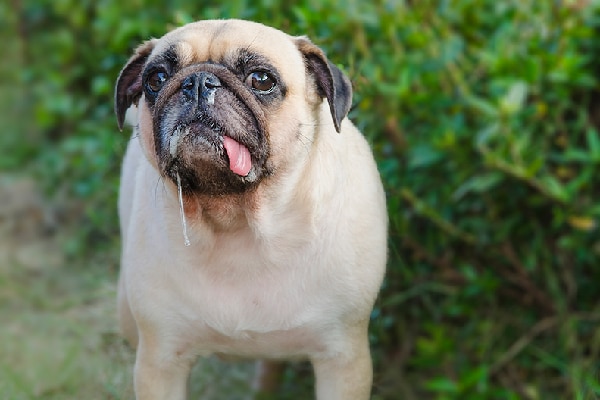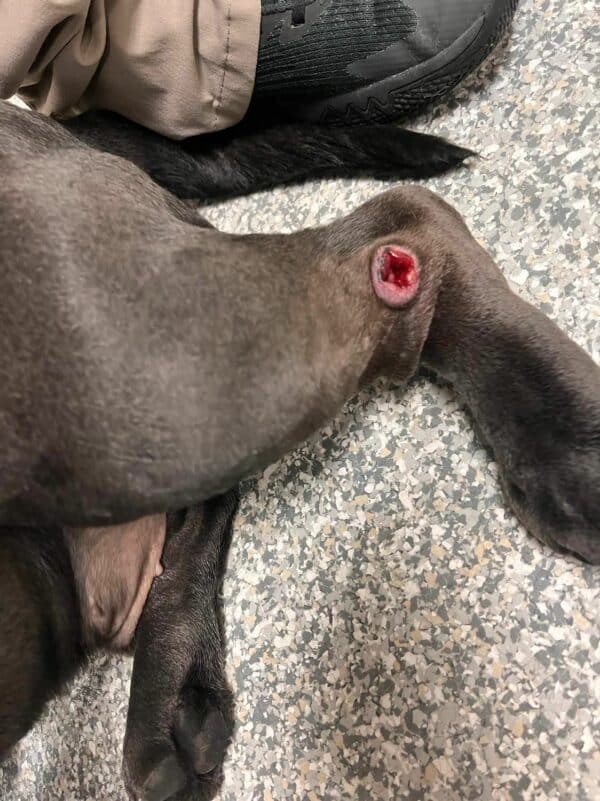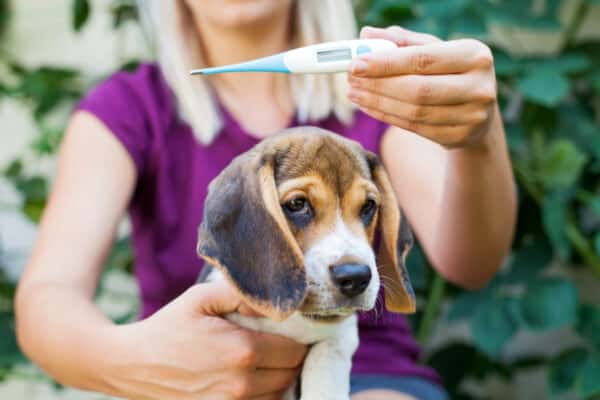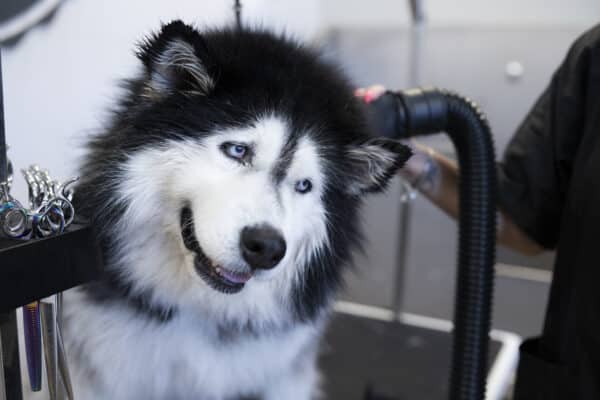For humans, a runny nose is usually no big deal — unless, of course, it’s cold season and you have a long-awaited vacation or other important event coming up. But a dog’s runny nose could signal a long list of possible health issues, ranging from allergies to infections.
What Causes a Dog’s Runny Nose?

According to Dr. Steve Weinberg, DVM, founder of 911 VETS in California, a dog’s runny nose is fairly common. “Nasal discharge can be a symptom of an array of health issues, including: allergy, nausea, viral infection, bacterial infection, fungal infection, foreign body, bleeding disorder, toxicities, trauma and neoplasia,” he says.
A dog’s runny nose can also occur as a result of congenital narrowing of the passages.
According to Dr. Rachel Barrack, DVM, founder of Animal Acupuncture in New York City, short-nosed brachycephalic breeds (such as Boston Terriers, Bulldogs and Pugs) are more prone to nasal discharge and respiratory issues. “Nasal discharge may be accompanied by sneezing, coughing, pawing at the nose, itching, difficulty breathing, loud breathing, decreased appetite and/or lethargy, depending on the cause,” Dr. Barrack adds. “Should your dog be showing any of these signs in addition to nasal discharge, visit your primary care veterinarian.”
Can You Stop a Dog’s Runny Nose Before It Starts?
Unfortunately, just like in humans, you can’t necessarily prevent a dog’s runny nose, but you can help your dog avoid dangers that could lead to nasal discharge and other respiratory issues — such as grass awns (also known as foxtails).
“You want to keep your pets out of dry brush and other dry lands,” Dr. Weinberg warns. “Grass awns have the propensity of entering the nose and other orifices and causing damage and discomfort to the nasal passages. These little awns can travel far … and actually end up in the lungs, causing nasty abscesses.”
Can You Treat Your Dog’s Runny Nose at Home?
Most pet owners will delay rushing to the vet if their dog sneezes or has a drippy nose. And sometimes your dog’s runny nose can be treated at home — or may not require treatment at all. “In most cases, mild, clear discharge does not require treatment,” says Dr. David Dilmore, DVM, of Banfield Pet Hospital. “If you notice unusual or prolonged nasal discharge, it’s always best to consult your veterinarian to determine the best path forward.”
In some cases, your four-legged friend may simply have allergies. Dogs can be sensitive to many of the things that humans are allergic to, including dust, pollen and mold. “If the nasal discharge is clear and on both sides of the nose, you can try Claritin antihistamine [under the direction of your vet] … assuming the cause is from allergies,” Dr. Weinberg says. If the discharge is on only one side, however, this is a case when your pet likely requires veterinary attention — especially if he or she is consistently sneezing or snorting, he adds.
Dr. Dilmore notes that if your dog’s runny nose lasts more than a week or becomes severe — or appears bloody, green, crusty or thick — your pet should be seen by a veterinarian. “Additionally, if you notice other signs of sickness in your pet, such as decreased appetite, lethargy, coughing, severe sneezing or difficulty breathing, schedule time with a veterinarian right away,” he says.
Diagnosis and Treatment for a Dog’s Runny Nose
The treatment for respiratory issues like a dog’s runny nose depends on the underlying cause, which is, of course, always best determined by your veterinarian. “A mild upper respiratory tract infection or allergies may not require any treatment, whereas more severe infections or pneumonia could necessitate antibiotics, cough suppressants, antihistamines or even hospitalization for oxygen therapy, depending on the severity,” Dr. Dilmore explains.
In the case of foreign bodies and cancer, your pet could require advanced diagnostics of their nasal passages, such as X-rays or a CT scan. Dr. Barrack notes that some causes of a dog’s runny nose may even require surgery, such as a polyp or tumor or cleft palate, and that obstructions (like those pesky grass awns) can typically be gently extracted with tweezers.
If a dog’s runny nose is allergy related, your veterinarian may recommend allergen testing or a food elimination diet. “Antihistamines and steroids may be recommended … and acupuncture and Chinese herbal therapy can also be an effective way to combat allergies,” Dr. Barrack notes.
Read more about dog health and care on Dogster.com:
- Dog Tooth Infection Signs and Treatments
- Kidney Stones in Dogs: Symptoms, Causes, Diagnosis and Treatments
- What to Know About Inflammatory Bowel Disease in Dogs
Featured Image Credit: fongleon356 | iStock / Getty Images Plus.





